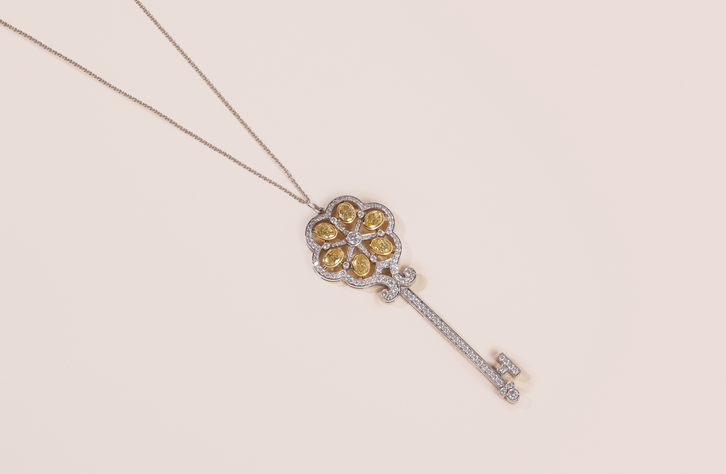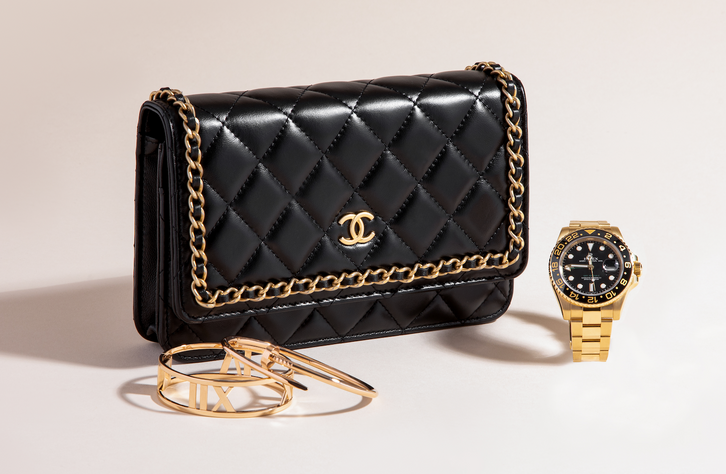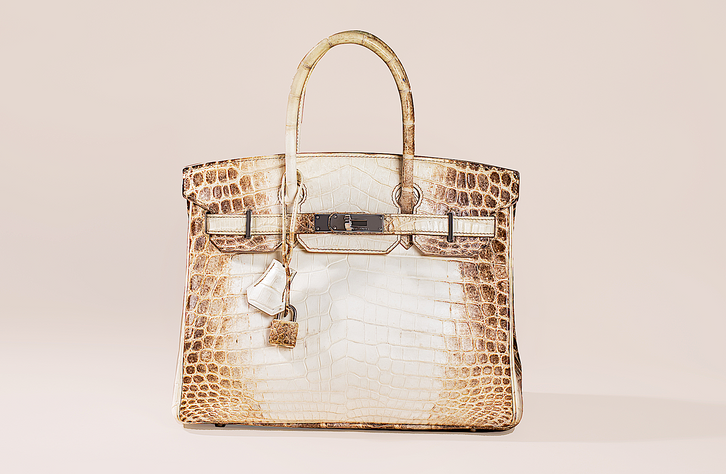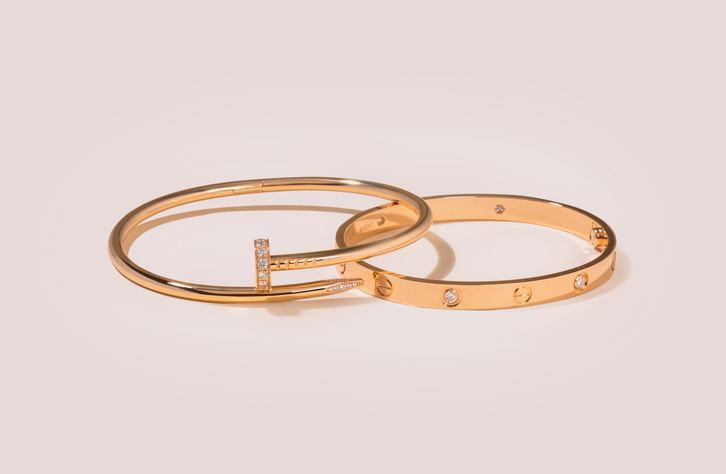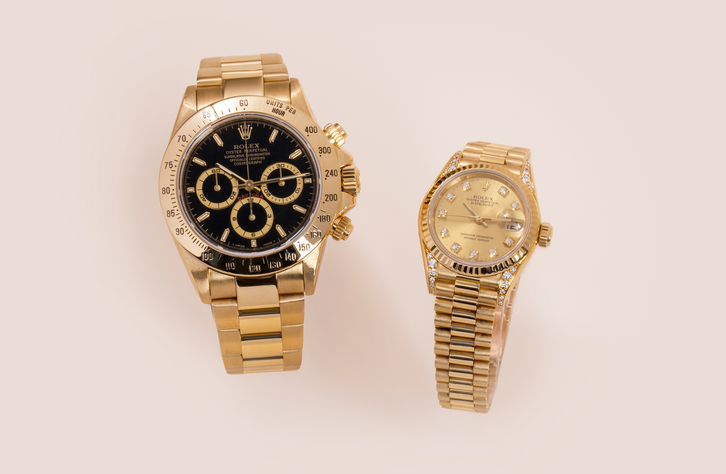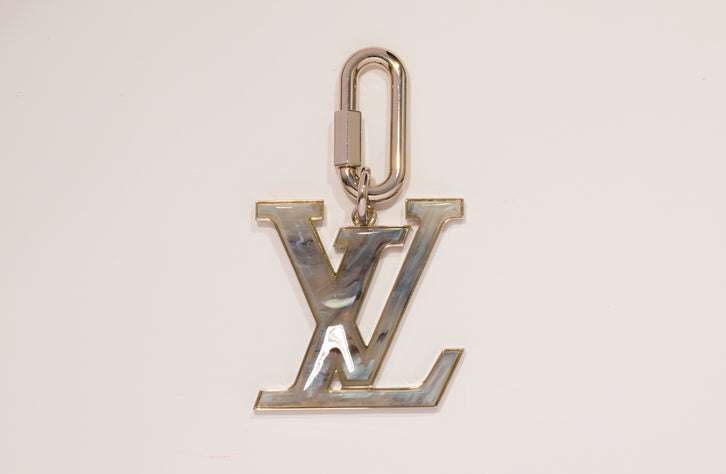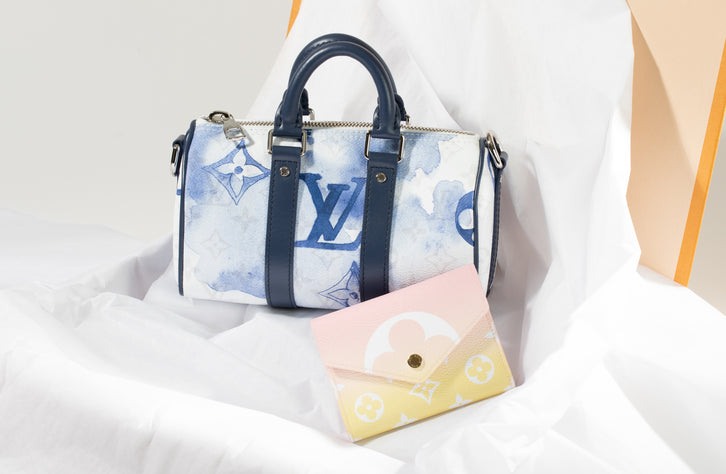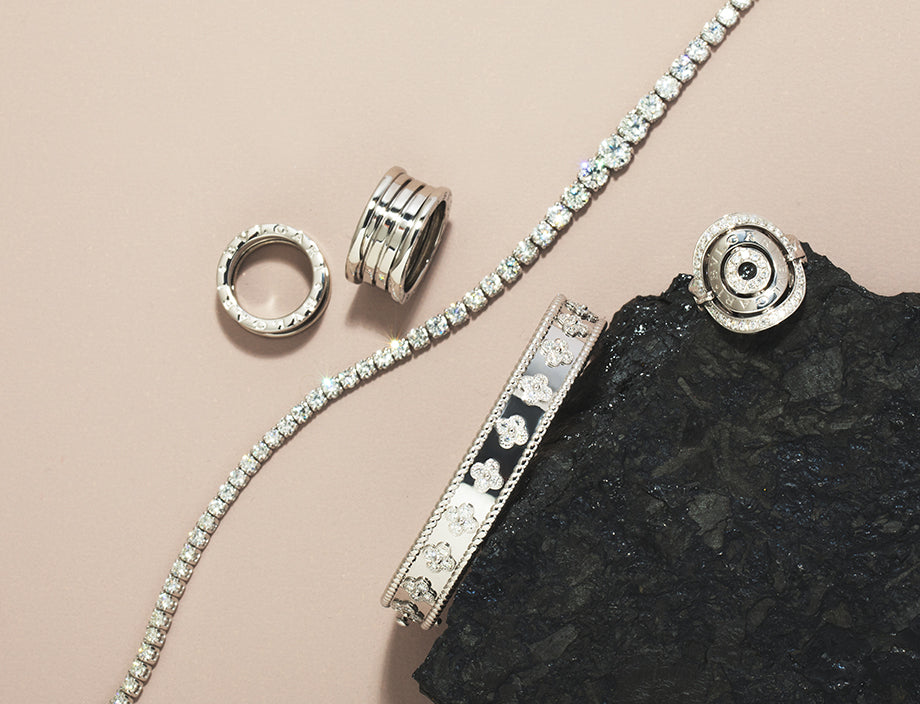If you own a luxury watch that you’re interested in selling, the following information guide to selling watches will walk you through the nuances of selling your investment. Trusting an experienced and educated buyer such as myGemma ensures you’ll get the maximum return on your treasured timepiece.
Watch Condition And How It Affects Resale Price
As with classic cars, coins, and real estate, the condition of your luxury watch directly affects the resell value. The closer to mint condition your watch is in, the higher the price it can command. When buyers evaluate a watch, they are carefully scrutinizing the various components that make up a watch—from the appearance to the technical functions.
Any faulty movements or deteriorating parts will contribute to depreciation in value. When owners take the time to regularly have their watch cleaned and serviced, it shows in the condition of the watch. Neglecting to clean a watch can result in dust and dirt building up, possibly affecting the movement and various parts over time.
What Is A Frankenstein Watch?
Frankenstein watches are watches that are altered or made using non-original parts. Maintaining the original integrity of a watch and only using original parts when needed is pivotal. Frankenstein watches are broken down into two categories: new watches that have been altered and vintage watches.
New Frankenstein watches are ones that have been altered in any way using aftermarket parts. For example, a Rolex watch that has a diamond bezel added to it that is not made by Rolex. The fact that aftermarket parts were used and installed by a non-authorized Rolex jeweler (Rolex will never service a watch using non-original parts) means the resell value of the watch is lowered considerably. A vintage Frankenstein watch (pre-1980) means watch makers have taken various parts of different watches to piece together a saleable watch. Watch buying companies will be unlikely to purchase Frankenstein watches; however, there is a market amongst specialized private buyers who will buy such watches at a lower cost.
Watch Repairs: How They Affect Resale Value
Like any vehicle, a luxury watch needs regular servicing to ensure all the parts are in working order. A luxury mechanical watch is a sophisticated machine with lots of moving parts. A complete service entails taking the mechanics of the watch out, cleaning it, and oiling it. Neglecting to service your watch can cause problems such as the oil drying out, a loss in timekeeping accuracy, and parts beginning to wear. Many manufactures recommend servicing a watch every four to five years. Servicing a high-end watch is a costly endeavor as is replacing any parts with factory originals. When selling your luxury timepiece, if service and repairs need to be made, a buyer will factor this expense into the purchasing price.
Does It Pay To Repair Your Watch Yourself?
If your watch is in need of major repair, selling it “as is” will likely get you a better value in the end than if you pay to have it repaired yourself. Unlike private jewelers, large companies such as myGemma have qualified experts lined up to make repairs as well as access to getting authorized, original parts. You may be tempted to take your watch to a private jewelers or send it directly back to the manufacturer, however myGemma will be able to make the repairs for less. It is also essential that the repairs done to your watch are made with precision and meet factory specifications. Failing to do so could have a significant impact on the watch’s value.
Why Are Luxury Watches So Expensive?
Even through the digital age, mechanical watches have maintained their appeal and value largely due to the superior craftsmanship associated with these pieces. Tom Pozsgay, watch expert and valuer at myGemma explains, “In the simplest mechanical watch there can be over 100 different parts. Each gear, each screw, and all the other parts in the movement must meet precise requirements for the watch to work.” There has not been a robot created yet that can handle such a task. Therefore, all these tiny parts have to be painstakingly put together by hand.
The case also adds to the expense of the watch. While we know precious metals such as gold and platinum are expensive, luxury brands have been using other high tech materials such as titanium, palladium, tungsten carbide, and ceramic.
Watch dials are another component that adds to the price. Some dials have a guilloche treatment, which is a hand engraved design, while others have an enamel dial. To create the perfect dial, some dial makers have to make 50 dials for one to pass strict inspection. If a watch has extra functions—known as complications—such as calendar functions and moon phase indicators, this will increase the value. Making a luxury watch, says Pozsgay, “is a precise art that requires a lot of man hours to produce the timepiece.” Depending on how elaborate a watch is, it can take many months to complete.
Finally, marketing and advertising a luxury timepiece costs money; this expense is also factored into the price of the timepiece.
How The Market Value Determines The Purchase Price
There are many factors that influence a watch’s market value, including brand influence, style, case material, limited edition pieces, marketing, and current trends. In the end, consumer demand plays a vital role when it comes to determining that value. Like any commodity that is being evaluated, the valuator factors in how much of a demand there is for each piece. “As in the stock market there are ebbs and flows in the value,” says Pozsgay. Some brands tend to retain more of their value than other brands. Rolex, Patek Philippe, and some Cartier watches have historically been able to maintain their high value. Recently, Omega has been gaining a bit of a stronghold on the market. When it comes to selling men’s versus selling women’s watches, women’s watches tend to depreciate faster.
myGemma analyzes all watches that are presented to us. We thoroughly research each watch based on current market conditions. Our years of experience and connections in the market place allow us to gather the necessary information to make a competitive offer. There are several highly respected watch pricing books and resources that we rely on to compile the information we need to determine the value of a pre-owned watch. Our goal is to provide a trustworthy experience that gives people the confidence they need to return to us time and time again.
The Importance Of Having The Original Box And Papers
Watches command the strongest resale value when accompanied by their original box and papers. With so many counterfeit watches saturating the market, having the original box and papers to accompany your watch helps to verify its authenticity, thus adding to its value. “The price without the box and papers is on average are about 20 percent less than with box and papers,” says Pozsgay. “Limited edition watches without papers can see an even more dramatic drop—sometimes as much as 50 percent.”
How Second-Hand Watches Are Recycled Back Into The Trade
The pre-owned watch market is growing significantly, yet with limited supplies available to retailers, watch buying companies are an essential source of inventory. The intricacies of luxury watches and the precision needed to build each component, requires having highly skilled experts tending to each watch in need of repair. Companies such as myGemma have access to experts in the field who are authorized to work on almost all of the luxury brands on the market today. These experts only use genuine parts from manufacturers, assuring retailers that all the watches we recycle back into the trade are 100 percent genuine.
